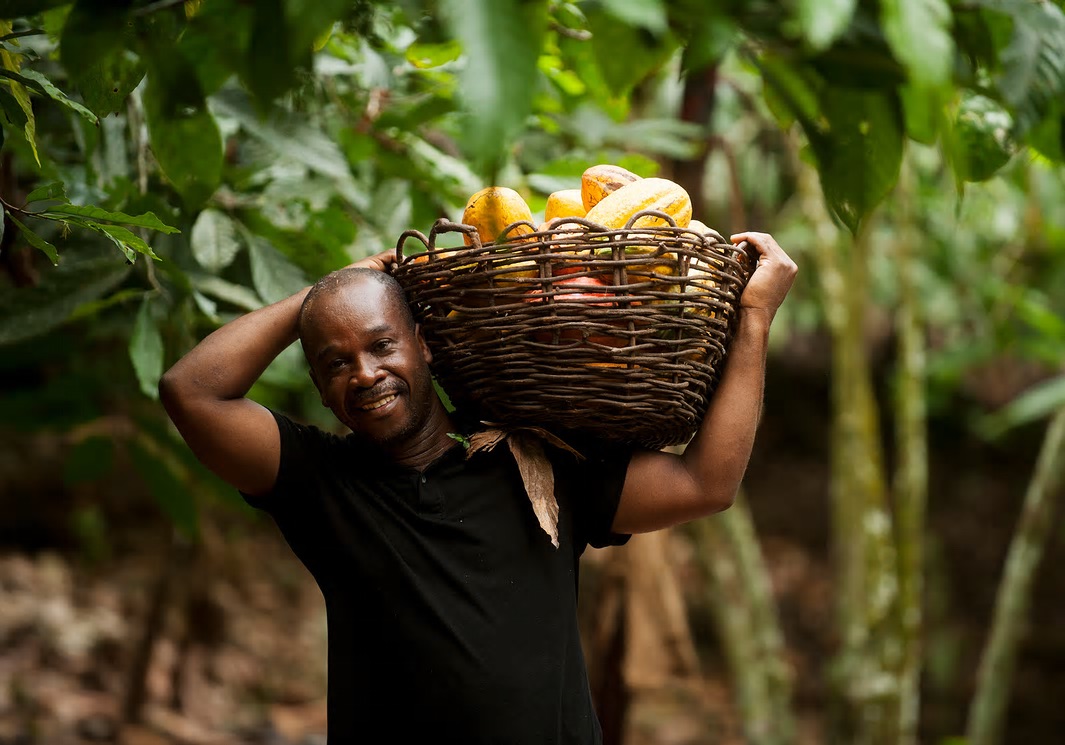Fairtrade cocoa farmer Fortin Bley from the Ivory Coast addressed delegates at the London Chocolate Forum on 7 October, warning that unless the international cocoa industry does more to involve farmers, it will risk losing a generation of cocoa growers.
Just as the 2016 cocoa harvest officially gets under way, Bley said: “Behind every house made of mud is real hardship. If you want to continue consuming chocolate, we all need to have a common vision. Ask us what we need, and we’ll talk to you, and we’ll take a decision together. That’s why we’ve chosen voluntarily, without any pressure, to migrate into Fairtrade certification, because we know they have human values, transparency and democracy.
“For us, the Fairtrade Mark represents a dignified producer. So, if you really want to change the life of producers, work in partnership with us, and you’ll make us happy.”
Bley, who is secretary general of his co-operative CANN, and chair of the Fairtrade West Africa Producer Network, added that cocoa communities urgently need development, especially in West Africa, where many live on $2 a day or less. Farming communities continue to be blighted by child labour, and lack the essential services such as clean water, decent homes with electricity, adequate healthcare and education. “Are we proud to see producers living like that? Do you think they can produce cocoa living this life? We need to change things. That’s why it’s so important for me to show you how cocoa is actually produced,” he said.
He warned that the young generation see no future in cocoa and are switching to more profitable crops or heading for the cities to seek out more dependable livelihoods. As a result, the average age of cocoa farmers in West Africa is now 51.
These factors add up to serious concerns across the industry about the long-term sustainability of the supply chain. As a result, the $150bn global chocolate industry is facing a watershed moment as demand for cocoa is increasing, but farmers are ever more vulnerable to shocks caused by climate change and extreme poverty.
Jon Walker, cocoa supply chain manager at the Fairtrade Foundation, said: “It’s simply wrong that cocoa farmers who grow one of our most indulgent treats are going hungry themselves. The cocoa industry should be the envy of other markets, with demand for its products growing year on year, as more and more people around the world can afford to indulge their taste for chocolate, but cocoa farmers must be empowered to reach a living income for a truly sustainable chocolate industry.
“Fairtrade supports empowerment of cocoa farmers. Many have turned to Fairtrade to address key social and environmental challenges. We’d like to work with more businesses to drive through long lasting, impactful change so farmers can decide their own futures.”











